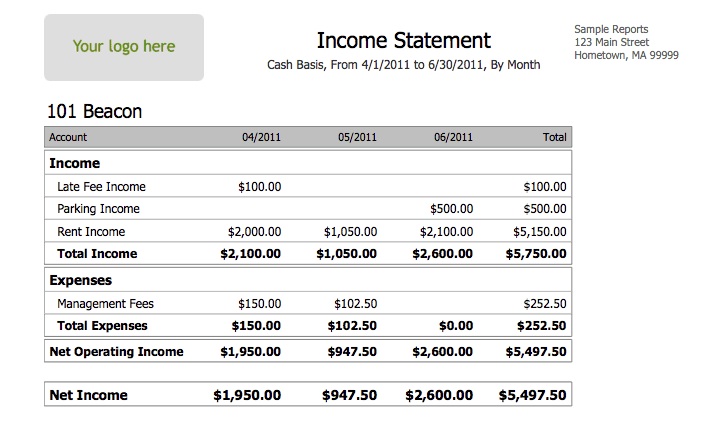How to Prepare an Income Statement for Rental Property
How to Prepare an Income Statement for Rental Property
Blog Article
Understanding the economic health of a hire house is needed for any landlord seeking to maximize returns. Certainly one of the utmost effective resources for monitoring this is an revenue statement. Also referred to as a gain and loss statement, this income statement for rental property overview of a property's money, expenses, and over all profitability.
An revenue statement isn't just for big corporations—it's equally important for landlords handling one or numerous rental properties. Listed here is how it works and why it's vital for checking profitability.

Breaking Down the Money Statement
An money statement includes three primary elements:
1.Revenue (Income)
That part involves all sources of money developed from the property. For a landlord, that usually indicates hire revenue paid by tenants. But, additionally it may catch extra revenue streams such as for instance parking charges, puppy fees, or washing facilities.
2.Expenses
Expenses in house administration can range between fixed prices like house fees and insurance to variable expenses like preservation, fixes, and utilities. That section also records for mortgage funds (if the property is financed), HOA expenses, and also advertising costs for getting tenants.
3.Net Income
Once overall expenses are subtracted from full revenue, landlords may establish whether their home is profitable. A confident effect indicates profitability, while an adverse determine points to a potential loss that needs quick attention.
Why Income Claims Are Important for Landlords
Utilizing an money record offers a few critical advantages for landlords.
•Evaluating Profitability
The money statement supplies a simple method to see whether your home is generating a gain or charging you money. That information is key for making data-driven decisions.
•Distinguishing Cost-Saving Opportunities
By itemizing expenses, landlords may pinpoint parts where expenses can be reduced. For example, if energy expenses are unusually large, it may be worth investigating energy-efficient upgrades.
•Tracking Financial Traits
Revenue claims as time passes show performance trends. Landlords may monitor how profitability varies with seasonality, market problems, or unforeseen changes like tenant turnover.
•Promoting Economic Targets
Whether about to reinvest in the property or save for future growth, money statements support outline financial strategies. Additionally they ensure it is better to secure financing if required, as lenders usually involve evidence of profitability.
Final Feelings
For landlords, an revenue record is more than just an sales tool—it's a gateway to higher economic management. By regularly compiling and researching money claims, landlords may obtain a further understanding of their hire property's income flow and profitability, ensuring long-term accomplishment in the aggressive property market. Report this page